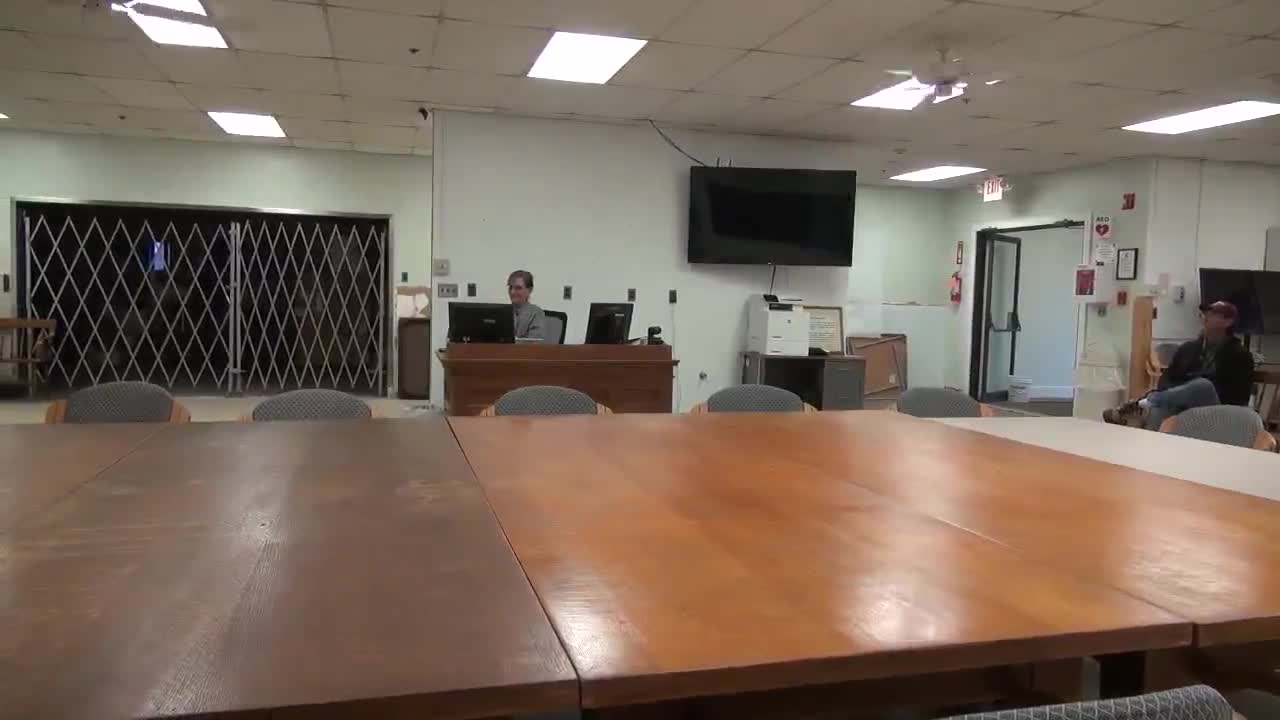Commission hears large corrections budget increase; approves PrimeCare mental‑health contract
October 20, 2025 | Carroll County, New Hampshire
This article was created by AI summarizing key points discussed. AI makes mistakes, so for full details and context, please refer to the video of the full meeting. Please report any errors so we can fix them. Report an error »

Carroll County commissioners spent a large portion of their Oct. 20 meeting on the Carroll County Correctional Facility budget, where officials described a substantial first‑year payroll increase tied to a new contract and sought approval of a PrimeCare contract to restore full‑time mental‑health coverage.
The county’s corrections superintendent, Brian King, told commissioners the largest single budget increase is salaries because “this is a contract year.” King outlined the proposed pay package: a $4‑per‑hour increase to starting wages in year one, followed by 3.5 percent in year two and 2.5 percent in year three, plus merit raises of 3.5/3.5/2.5 over the same period. He said the increase will move the jail to the state’s second‑highest starting wage and is intended to help recruitment.
King also urged commissioners to approve a PrimeCare contract to hire a 40‑hour‑a‑week clinician. He said the contract’s first‑year cost, including salary and benefits, would be about $147,000 and that the county currently lacks a full‑time mental‑health clinician — a gap that affects federal and accreditation reviews. “I’d like to hire as soon as possible,” King said, adding he had funds available this year to cover the position and that the county could use existing opioid‑related funds to offset the first year so taxpayers would see no increase.
County staff explained the net change in mental‑health spending reflects both the new PrimeCare clinician and savings from a lost contract earlier in the year. The superintendent said he reduced a previously budgeted $117,000 mental‑health line to about $52,000 to cover an interim Secure Counseling contract while the PrimeCare clinician is recruited and the county meets PREA (Prison Rape Elimination Act) and accreditation requirements.
After discussion about costs and funding sources, the commission voted to approve the PrimeCare contract for mental‑health services at the correctional facility in the amount of $147,051.60 (listed as $12,254.30 per month). The motion was moved and seconded and carried on an aye vote.
Commissioners also discussed other corrections‑related budget lines: increases in meals tied to higher per‑meal charges and an increased inmate average used for projections, vehicle maintenance and cruiser replacement needs, and combined “use‑of‑force” equipment budgeting that consolidated several prior lines into one. The superintendent said some line‑item increases were combination artifacts rather than net new spending and proposed revising presentation format so combined lines are clearer in future budget documents.
The superintendent and commissioners emphasized the hiring decision’s timing and funding: officials present described using existing opioid‑settlement funds to cover the first year of the clinician, with ongoing costs to be considered in future budgets. The hire and contract approval are intended to address both staffing and compliance issues identified in recent PREA and other audits.
Looking ahead, county staff said the contract would be returned to the county executive for signature and implementation steps, and King said he would report back to the board once PrimeCare confirmed a recruit.
The county’s corrections superintendent, Brian King, told commissioners the largest single budget increase is salaries because “this is a contract year.” King outlined the proposed pay package: a $4‑per‑hour increase to starting wages in year one, followed by 3.5 percent in year two and 2.5 percent in year three, plus merit raises of 3.5/3.5/2.5 over the same period. He said the increase will move the jail to the state’s second‑highest starting wage and is intended to help recruitment.
King also urged commissioners to approve a PrimeCare contract to hire a 40‑hour‑a‑week clinician. He said the contract’s first‑year cost, including salary and benefits, would be about $147,000 and that the county currently lacks a full‑time mental‑health clinician — a gap that affects federal and accreditation reviews. “I’d like to hire as soon as possible,” King said, adding he had funds available this year to cover the position and that the county could use existing opioid‑related funds to offset the first year so taxpayers would see no increase.
County staff explained the net change in mental‑health spending reflects both the new PrimeCare clinician and savings from a lost contract earlier in the year. The superintendent said he reduced a previously budgeted $117,000 mental‑health line to about $52,000 to cover an interim Secure Counseling contract while the PrimeCare clinician is recruited and the county meets PREA (Prison Rape Elimination Act) and accreditation requirements.
After discussion about costs and funding sources, the commission voted to approve the PrimeCare contract for mental‑health services at the correctional facility in the amount of $147,051.60 (listed as $12,254.30 per month). The motion was moved and seconded and carried on an aye vote.
Commissioners also discussed other corrections‑related budget lines: increases in meals tied to higher per‑meal charges and an increased inmate average used for projections, vehicle maintenance and cruiser replacement needs, and combined “use‑of‑force” equipment budgeting that consolidated several prior lines into one. The superintendent said some line‑item increases were combination artifacts rather than net new spending and proposed revising presentation format so combined lines are clearer in future budget documents.
The superintendent and commissioners emphasized the hiring decision’s timing and funding: officials present described using existing opioid‑settlement funds to cover the first year of the clinician, with ongoing costs to be considered in future budgets. The hire and contract approval are intended to address both staffing and compliance issues identified in recent PREA and other audits.
Looking ahead, county staff said the contract would be returned to the county executive for signature and implementation steps, and King said he would report back to the board once PrimeCare confirmed a recruit.
View full meeting
This article is based on a recent meeting—watch the full video and explore the complete transcript for deeper insights into the discussion.
View full meeting
